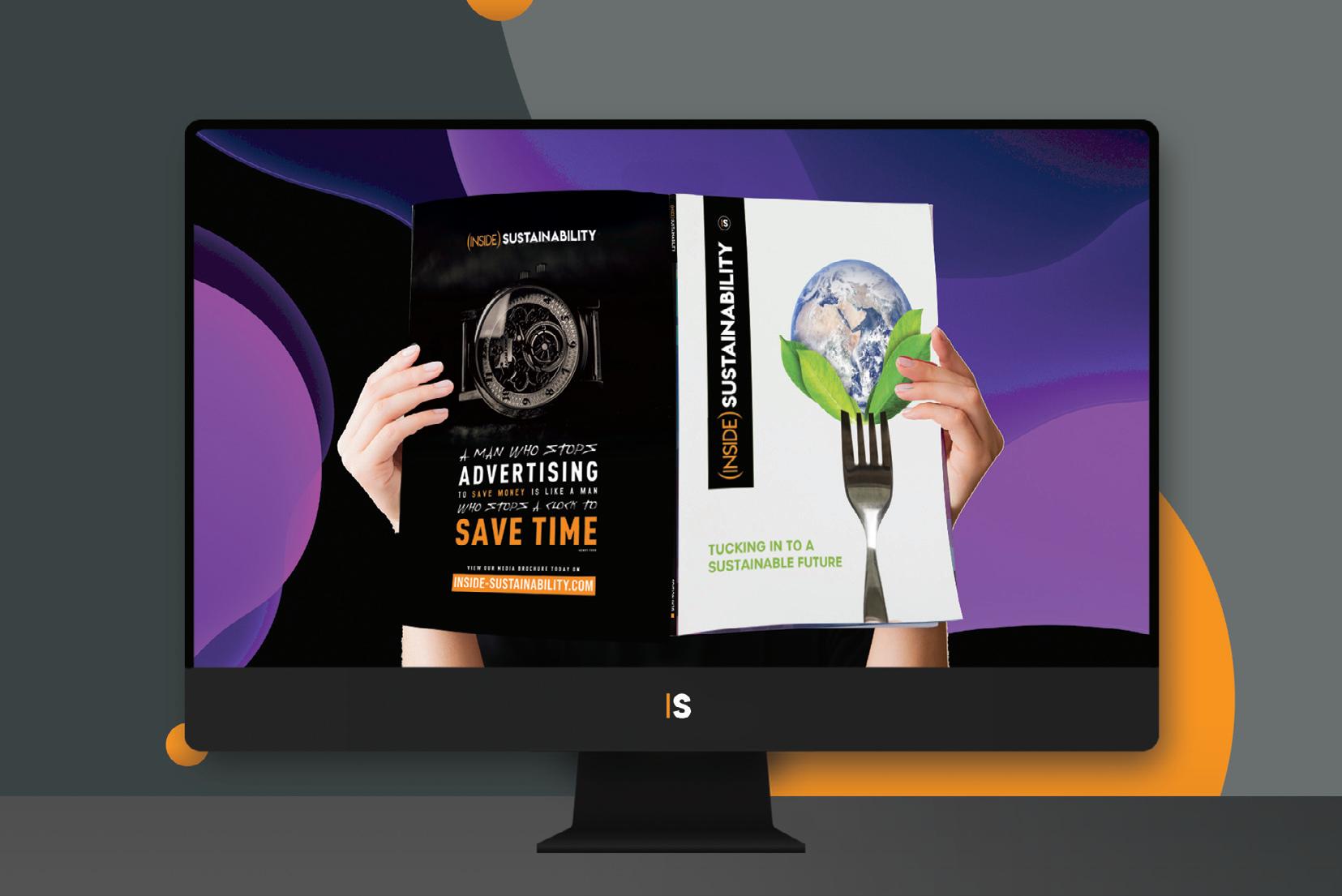

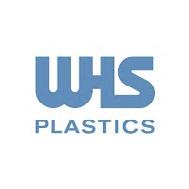

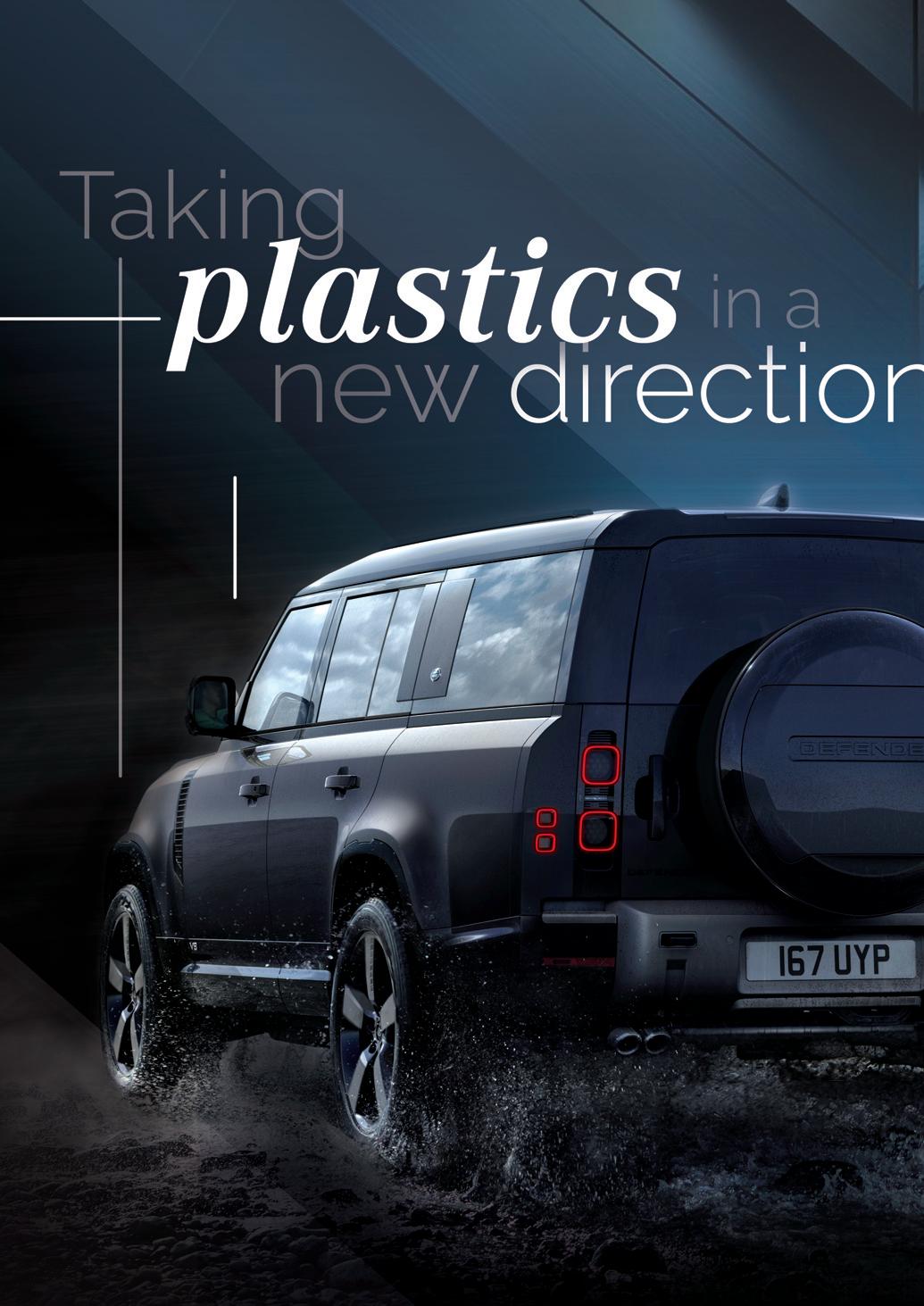

WHS Plastics has been revitalised as it embarks on a new era in its 90year history as a Tier 1 supplier to the automotive sector. Having survived Covid, public pushback against plastics, acquired its main competitor and diversified into new markets, the company is now advancing at pace. Andy Probert spoke with the management team to learn more.
ASthe UK’s largest independent injection moulder, WHS Plastics Group is firmly positioned to transition its business strategy to be rich in diversity, innovation and sustainability. Its journey into 2024 has been one of pain, endurance and tenacity borne out of Covid which turned many businesses to ashes. It has transformed into a stronger, leaner operation focused on bouncing back from adversity.
“Xandor Plastics and WH Smith, the UK’s two biggest independent moulders, merged to become WHS Plastics in early 2023,” explained Group Sales & Marketing Director Mike Murphy. “The effects of Covid, the macro climate and the microchip crisis meant manufacturing output across the UK automotive sector was decimated, and both companies were huge suppliers to many OEM and Tier 1 customers.
“When Covid broke, we had invested £14 million in state-of-the-art robotics, clean room technology and new injection moulding presses. Additional monies were
invested in plant infrastructure to support new models and increased volumes, but neither materialised. Both companies found themselves in significant financial distress with many high-quality assets that were simply left under unutilised.
“There wasn’t enough volume work, so after much soul searching, debate and consulting with certain key customers, we merged the two businesses. The Smith family, headed by Chairman Clinton Smith and CEO Paul Nicholson acquired Xandor Plastics. This step not only maintained the family’s ninety-year business history, but it also established a new larger platform primed for growth.”
A new chapter
Following the merger, the Minworth fourthgeneration family-owned entity became the UK’s largest independently owned injection moulding company. It employs nearly 2,000 people across sites in the UK, plus a mould and assembly operation in Cairo. The company has a fully integrated tooling operation with the capability to build tools from scratch, as well as support comprehensive TPM and prototyping activities.
Across the group, there are more than 225 injection moulding presses of up to 2,700T clamp force and this is

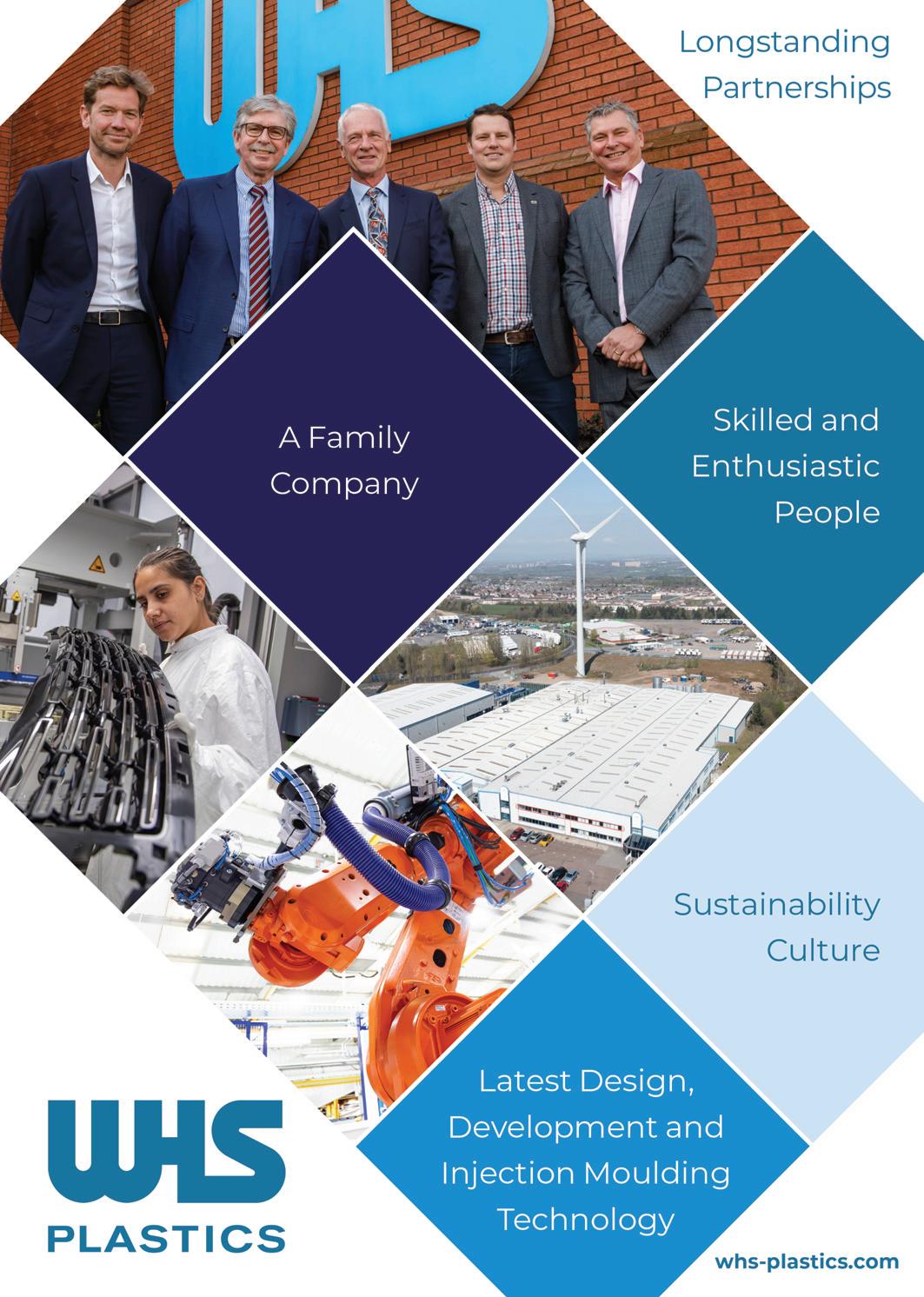
comple mented by sophisticated design and development systems, engineering, painting and assembly capabilities.
Automotive generates a significant proportion of WHS Plastics’ business as it is a leading Tier 1 supplier to prestigious manufacturers such as Jaguar Land Rover, Toyota, Nissan and Aston Martin. It also supports a growing list of international blue-chip companies, including Marks and Spencer, Hewlett-Packard, Samsung and JCB, across industries as diverse as packaging, electronics, industrial, catering and hygiene.
Growth curve
From a risk mitigation and strategic view, the company’s diversification in nonautomotive markets was progressing

well, according to Mr Murphy: “We have confirmed new partnerships with clients in the building, packaging, and power tools industries and this will underpin the next phase in our growth.”
Sales Director Richard Shilleto explained how WHS manufactures a comprehensive and diverse product portfolio that includes exterior and interior products for automotive, as well as functional black products and highly complex components for the very latest EV vehicles. On the extrusion side, the company makes ink delivery systems, and its metal stamping plant supplies many specialist components and fasteners to various diverse industry sectors.
Key Account Director Andrew Kendrick added: “As more companies look to onshore, we have taken on new partners, while our Egyptian base is working closely with a number of partner customers where low-cost assembly is key.”
WHS Plastics achieved a turnover of nearly £200m in 2023 and is targeting sales of £220m target for 2024 and £250m in 2025, based on work evolving from its pipeline. “We have around £90 million of additional booked work for 202425, and many exciting plans will feed into our growth streams in 2026,” Mr Shilleto said.
“We have some new and exciting programmes set for late 2025-2027 relating to components for the next generation of electric vehicles,” Mr Murphy continued. “We

intend to invest significantly in automation in our factories to manufacture them.”
A year after the merger, Mr Murphy reflected: “We are by no means complacent, but it is going well. The success of various high profile JLR vehicles which feature heavily in our product portfolio is justifying our previous automation investments. As volumes ramp up, this technology will contribute to our recovery. Non-automotive is also extremely positive and the work we are doing on the use of sustainable polymers is helping WHS Plastics’ growth path.”
Sustainable targets
“You cannot get away from the fact that we are a plastics company,” said Andrew Woolley, HR & Compliance Director. “But
we have been categorised in the same way as the companies who make and use single-use plastics. That has given our industry an unfair challenge.
“Within the automotive sector that we predominantly supply to, plastics are good for many aspects of a car’s performance. They are lighter than traditional components, meaning better fuel economy.
“We are working with OEMs, looking at the eventual recycling at the end of a vehicle’s life. From our engineering team, innovations are coming forward in how we produce and paint plastics, and potentially integrate plastics into electronic components within the manufacturing processes.”
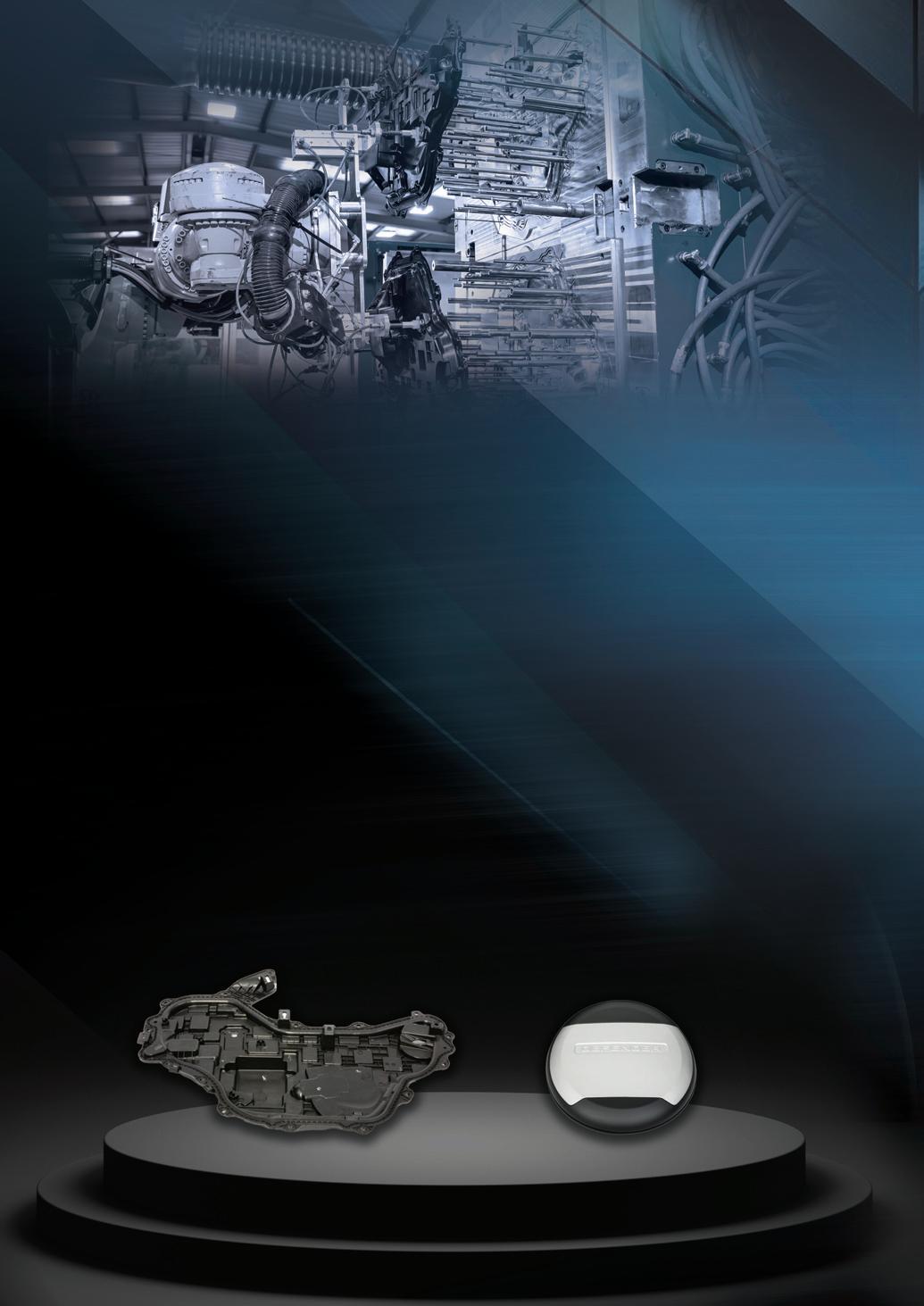
On the zero-carbon front, an assessment of WHS Plastics’ manufacturing operations found 60% of all energy usage was electric. So, a wind turbine was installed at the Larkhall site to source 25% of its electricity needs, and there are plans for solar power plants in 2024.
“We recognise these don’t go far enough to address our total power needs,” Mr Woolley continued. “We’ll have to source greener electricity at some point, but we want to be net zero by 2039 with minimal use of offsets.”
Along with investments at its facilities to minimise carbon emissions and waste, the company is working on four work streams: net zero carbon, packaging, sustainability culture and sustainable polymers to achieve significant sustainability goals. “Good environmental performance is good for business, and even better for a sustainable business,” Mr Woolley said.
The company has moved its car fleet to hybrid, will switch its forklift trucks to electric and is considering heat exchang e facilities in ovens to reuse energy. WHS Plastics also utilises returnable plastic packaging, and its corrugate cardboard

suppliers have increased the percentage of recycled material from 20% to a minimum of 70%. Non-recycled material is sourced from FSC-accredited sources.
A New Product Introduction process requires engineers to report whether it uses the most sustainable packaging possible. “We have constructively challenged customers to minimise the environmental impact of packaging,” Mr Woolley explained.
This approach eliminated 320,000 large polythene bags during the expected product lifecycle of one part number, with significant benefits to a client. A ‘sustainability culture’ is also promoted to staff, to encourage them to minimise their environmental impact inside and outside of work.
WHS Plastics is embracing a collaborative approach to working with suppliers on sustainable polymers with recycled materials and moving to novel non-oil-based polymers to achieve plastic components that offer a high level of inbuilt safety performance
“We are working with a company that takes household waste and changes that into a product that can be mixed with other plastics,” said Mr Woolley. “Adding five per cent of that material results in a carbon-neutral product, while adding six per cent makes it carbon-positive. These recycling routes offer a positive place for plastics in our society.”
WHS Plastics’ Sustainability Officer Katarzyna Wolska is embarking on a major project to analyse lifecycle carbon footprint assessments of each WHS component.
“WHS Plastics’ destiny is in its own hands,” concluded Mr Murphy. “The turnaround has been transformative. This is a testament to the workforce that has responded tremendously to the merger, plus the fantastic support from our owners, suppliers and customers alike.” n

